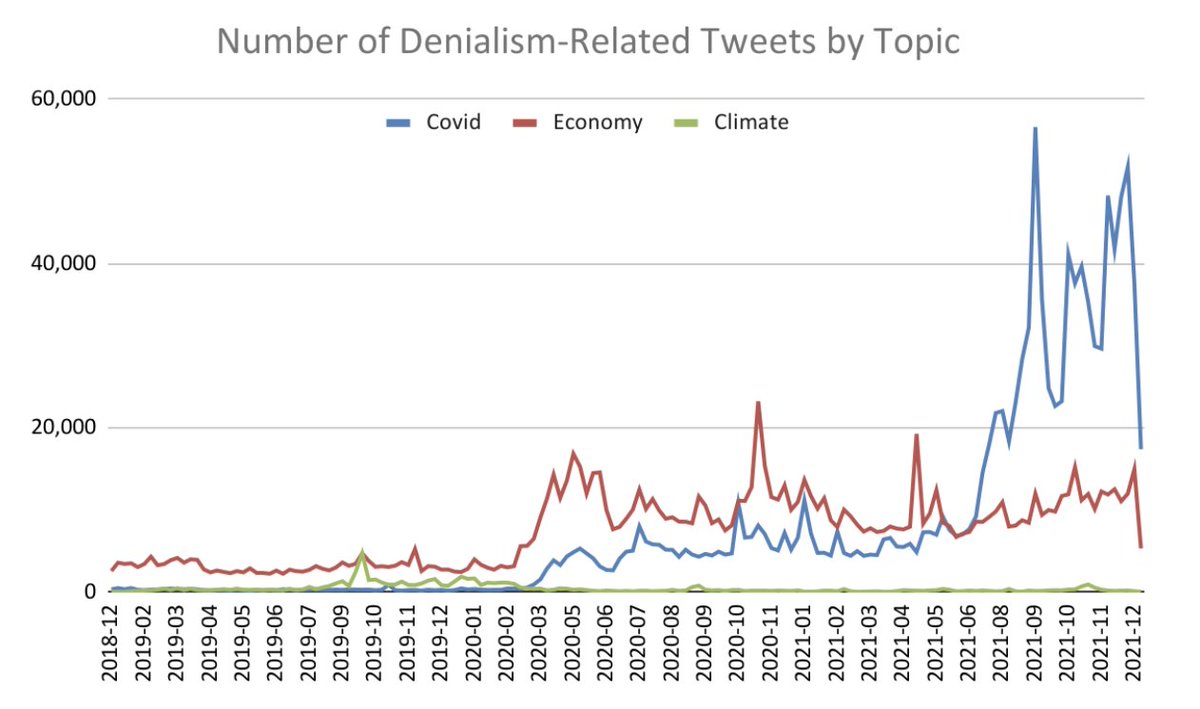
#Denialism: Are we all living in a self-serving delusion? And what can we learn from the ones who undoubtedly are?
A 🧵 about the research by @sigmundsfreund using #TwitterData.
A 🧵 about the research by @sigmundsfreund using #TwitterData.
🔎 @sigmundsfreund came across some very interesting conversation denying empirically proven facts & while they struggled to understand the root cause, they wanted to explore it further…
They identified three areas in which we could collectively experience denialism behaviour, amplified via social media, which are:
🦠 The pandemic
🌍 Climate change
🪙 Economic crisis
🦠 The pandemic
🌍 Climate change
🪙 Economic crisis
Whilst different theories already exist about the motivations & causes of denialism, @sigmundsfreund wanted to analyse existing commonalities within the personality structure of denialists, across these three key areas!
.@sigmundsfreund chose to analyse #TwitterData, which has shown him the following volumes of denialism-tweets related to these three areas over the last 3 years 🦠🌍🪙 

Although all three topics have their own topological & social epicenters, they're actually interconnected. But there are subtle differences that make some particular denialists more likely to become conspiracy theorists. 👀 

Social data supports what has been described in a @guardian article on “Why people believe Covid conspiracy theories”, namely that, like conspiracy theorists, denialists also imagine stakeholders to be behind the (not existing) pandemic or climate crisis.
theguardian.com/world/ng-inter…
theguardian.com/world/ng-inter…
From a social perspective, it is especially interesting to see how all three groups are interconnected. Particularly how they utilise arguments from each other’s narrative to support their individual worldview & perspective. 🦠🌍🪙 

Trending hashtags & keywords associated with these segments reveal to what extent they perceive everyone else to be living in some kind of mass psychosis, whilst they see themselves legitimised to hold the line in civil disobedience 

In their article, @annajleach & @milesprobyn identify a combination of catastrophic events & environments lacking trusted information as a possible cause, whilst also conceding that an overload of information might have the same effect as lack of trusted information.
Based on a more in-depth analysis of the denialist audience data, @sigmundsfreund identified a series of clear indicators for denialist behaviour across all analysed segments. These indicators include the following characteristics: 

Read more about @sigmundsfreund’s study and see the conclusions here 👇
behave.digital/post/672527815…
behave.digital/post/672527815…
• • •
Missing some Tweet in this thread? You can try to
force a refresh





